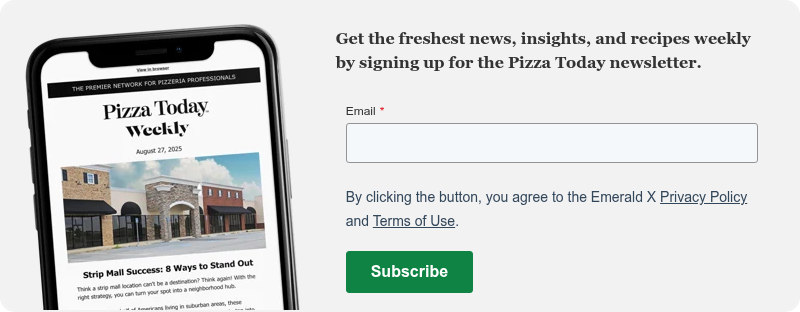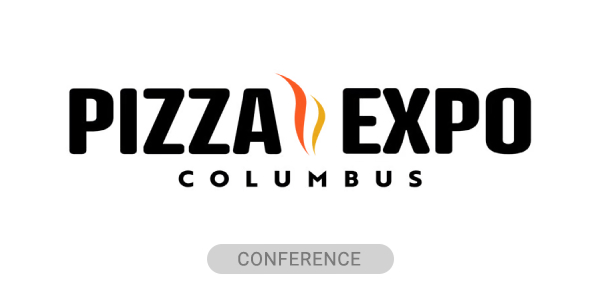Common Legal Issues for Pizzeria Owners: Expert Guide 2025
Running a pizzeria is tough enough without worrying about lawsuits and compliance issues. But in the heavily regulated restaurant industry, ignorance isn’t bliss – it’s expensive.
With seven years of experience building a wood-fired pizzeria concept across Idaho, Oregon and Washington state, Thomas Reinhard, CFO and general counsel of Cascadia Pizza Co., has seen it all. “We’re in a highly regulated industry, and I see folks get into trouble all the time – so much more than you would ever imagine,” he shares with pizza entrepreneurs during Pizza Expo 2025.
Employment Law: The Biggest Legal Minefield
Employment issues are the biggest area of enforcement, according to Reinhard. The most common violations revolve around three areas: overtime calculations, tip compliance and youth worker regulations.
Getting Overtime Right
Overtime pay is calculated weekly, not per pay period. If you’re on a bi-weekly payroll schedule and an employee works 45 hours one week and 35 the next, those five extra hours in the first week still require overtime pay.
“This trips up some folks, especially in their first few years of business,” Reinhard says. The solution? Track hours weekly and ensure your payroll system calculates overtime for each seven-day period.
The Tip Pool Trap
This is where things get expensive fast. Reinhard was adamant: “Owners and managers cannot participate in a tip pool, even if they are providing services that other folks that participate in the tip pool are doing.”
It doesn’t matter if your manager spends 50% of their time serving tables. If they’re classified as a manager, they’re out of the tip pool entirely. And here’s the kicker: Federal law defines a manager as someone who “regularly directs the work of two or more individuals and has input – not necessarily control – but even just input in hiring and firing decisions.”
The penalties are severe. If caught, you must pay back all tips the manager received, double it as interest to affected employees, and face civil penalties. “Let’s say you’re in business for two years, unknowingly doing this, and you get caught. It’s a six-figure issue for your business,” Reinhard cautions.
Youth Worker Restrictions
Federal law prohibits minors (ages 14-17) from operating or cleaning dough mixers and meat slicers. Period. “I just saw a couple of press releases from DOL from earlier or late last year that there were some folks that got into trouble for that, and there’s some fines associated with that as well.”
Make sure only employees 18 and older handle this equipment, and document your training procedures.
The Employee Handbook: Your Legal Shield
An employee handbook serves as your business constitution, Reinhard says. It protects you from wrongful termination claims, helps you fight unemployment insurance claims and establishes clear policies for everything from dress codes to disciplinary procedures.
“If you have an issue with an employee and they say, ‘Well, I didn’t know that was the procedure … you can always point back to the handbook,” Reinhard says.
Essential handbook components include:
- Wage and hour policies.
- Tip-distribution procedures.
- Break and meal period requirements.
- Anti-discrimination and harassment policies.
- Safety protocols.
- Disciplinary procedures.
- Code of conduct.
While AI tools might seem tempting for creating handbooks, Reinhard doesn’t recommend them. “There’s so much state-specific law and legislation that I don’t think AI is sophisticated enough to really understand the nuance there,” he says.
It might cost $2,000-$4,000 for a professionally drafted handbook, but consider it insurance against costlier legal problems later.
Customer Liability: When Accidents Happen
Slip-and-fall incidents are driving up insurance costs industry-wide, and personal injury attorneys are aggressive about pursuing claims.
“Someone slips and falls on your property and breaks their back, or they break their foot, or they’ve got long-lasting damage – they can sue you,” Reinhard says. “They can sue you, they can sue your landlord, they can sue your mom. I mean literally, they’ll list everybody.”
With civil trials taking six to seven years in some jurisdictions, insurance companies often prefer settling claims rather than fighting them in court.
ADA Compliance
Americans with Disabilities Act violations represent another significant exposure area. While building permits typically ensure basic compliance, ongoing maintenance and accessibility can create issues. Regular ADA compliance audits can help identify and address potential problems before they become lawsuits.
Food-safety Stakes
Food contamination isn’t just a health risk – it’s a legal catastrophe waiting to happen. Reinhard shares a sobering local example: “In Washington State, we just had a beloved hamburger shop. Four people were killed from listeria because their ice cream machine was not cleaned properly.”
Maintain rigorous cleaning schedules, ensure proper sanitizer levels and stay current with local health department requirements. The stakes are simply too high to cut corners.
Insurance: Your Financial Safety Net
Reinhard calls insurance a “necessary evil.” But adequate coverage is non-negotiable.
Essential Coverage Types
General Liability/Umbrella
Minimum $2 million per location, $5 million aggregate. Larger operators may need up to $10 million in coverage.
Employment Practices Liability (EPL)
Protects against employment-related claims beyond wage and hour issues. Your insurer will defend you and pay fines for covered violations.
Wage and Hour Defense
This won’t cover back wages or penalties, but it will pay your legal defense costs up to policy limits – often $100,000 or more.
Liquor Liability
If you serve alcohol, this is crucial. Most states have “dram shop” laws holding establishments liable for over-serving customers who then cause accidents. The potential exposure is enormous – if an intoxicated customer kills someone, you could face a multi-million-dollar lawsuit.
The Music Licensing Surprise
Did you know playing Spotify or Apple Music in your restaurant is illegal? “They’re not licensed for what’s considered commercial broadcasting,” Reinhard says.
The consequences are severe – six-figure fines per song played. Mystery shoppers from licensing organizations such as ASCAP actively look for violations. The solution is simple: Use a commercial music-streaming service licensed for business use. Local radio is typically acceptable, though you’ll have to deal with commercials.
Protecting Your Brand: Trademark Basics
Intellectual property protection might seem unnecessary for single-location operators, but Reinhard strongly disagrees. “It’s not all that expensive to find an intellectual property attorney who can trademark your name and your logo.”
The USPTO process takes 13-15 months, but federal trademark protection prevents copycats nationwide and protects your brand’s reputation. You can also trademark unique menu item names that become part of your identity.
Lease Negotiations: Getting the Details Right
Your lease agreement can make or break your business, and the details matter enormously. Three critical clauses deserve special attention:
Mutual Indemnification
This protects you when your landlord’s actions result in lawsuits naming you. If the landlord’s parking lot paving project causes an injury, they’re required to defend and hold you harmless.
Waiver of Subrogation
This technical clause prevents landlords from coming after you directly for insurance claims. Reinhard learned this lesson the hard way when a fire at his restaurant led to mitigation costs exceeding his landlord’s policy limits.
“The landlord called me up and said, ‘Hey, you owe me $13,000 – you guys caused this fire,’” Reinhard recalled. “I called my insurance company, and they said, ‘Nope, you’re covered. You’ve got a waiver of subrogation clause.’”
Defined Responsibilities
Know exactly who pays for what – especially big-ticket items such as HVAC, plumbing and electrical systems. A common arrangement is that tenants handle routine maintenance, while landlords cover major repairs and replacements.
Building Your Legal Dream Team
The restaurant industry’s complexity demands professional guidance. Reinhard suggests creating a strong relationship with an attorney who practices in the restaurant industry. Specifically, look for attorneys specializing in:
- Employment law (for handbooks and compliance issues)
- Intellectual property (for trademarks)
- Business transactions (for leases and contracts)
- Restaurant industry experience
Expect to pay $300-500 per hour depending on your location. As Reinhard noted, “It really can save you down the road from costly litigation.”
Frequently Asked Questions
How far back can enforcement agencies investigate?
Typically three years for routine investigations, but they can go back as far as seven years if violations are discovered. Maintain detailed records and store them properly.
What if all employees on a shift are managers?
In traditional tipping models, they can keep their individual tips since they’re providing direct service. In tip-pooling situations, the tips must go to other eligible employees since managers can’t participate in pools.
Can I deduct credit card processing fees from tips?
Federal law allows deducting actual processing costs, but Reinhard doesn’t recommend it due to the complexity of calculating exact rates. The risk of taking too much isn’t worth the small savings.
What about delivery driver tips?
Delivery drivers can keep tips since they’re providing the complete service – taking the food from your restaurant to the customer’s door. The service isn’t just making the pizza; it’s the delivery itself.
Next Steps: Compliance Action Plan
Legal compliance isn’t a destination, it’s an ongoing journey. Start with these immediate action items:
Week 1: Audit your tip-pooling practices. Remove any managers or supervisors from tip pools immediately.
Week 2: Review your music-streaming setup. Switch to a commercial provider if you’re using consumer services.
Week 3: Schedule consultations with employment and IP attorneys if you don’t have existing relationships.
Month 1: Complete employee handbook development and implementation.
Month 2: Review insurance coverage with your broker, focusing on employment practices liability and wage and hour defense.
Month 3: Conduct trademark searches and begin the application process for your brand protection.
By addressing these compliance areas proactively, you’re not just avoiding problems, you’re building a stronger, more professional operation that can weather whatever challenges come your way.



